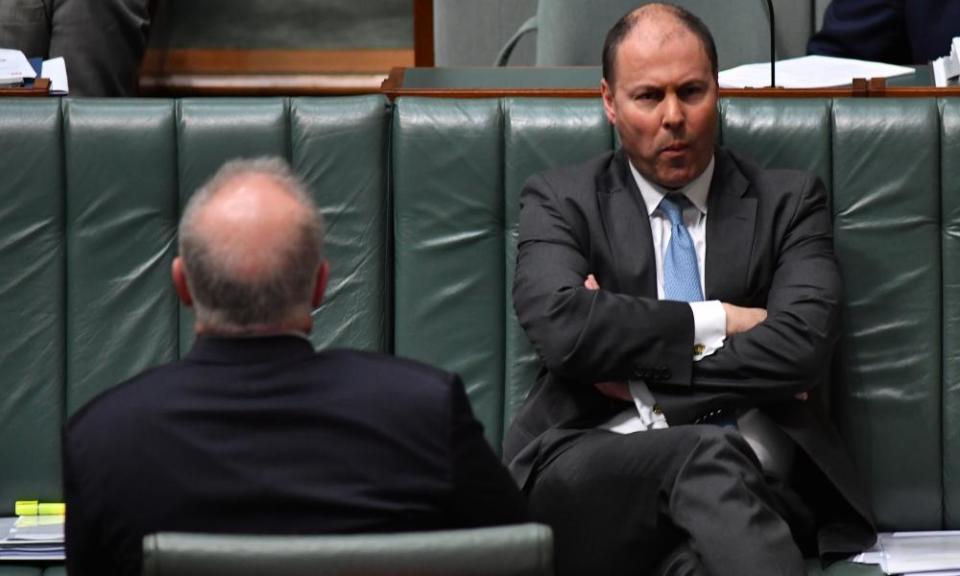Bringing forward tax cuts is giving to the wealthy when we can least afford it

The week the parliamentary budget office’s latest analysis of government finances found that government revenue raised in the month of May this year was nearly $10bn less than was raised in May last year, and the government spent $39bn more this May than last.
All up, it means the budget deficit in the first 11 months of the 2019-20 financial year was $64.9bn compared with an expected $4.0bn. It also means government debt is now $110bn more debt than budgeted – or 17% more than the government expected in December.
And so, what is the government’s response at a time when tax revenue has utterly shrunk and debt is rising?
Tax cuts!
The strong whispers are the government will bring forward income tax cuts which are legislated to occur in 2022-23 and 2024-25. These, we should remember, were passed at a time when the government was forecasting zero net government debt by 2029-30.
But let us not fall into the trap of thinking the Coalition no longer cares about debt and deficits.
The treasurer this week once again brought out the old saw that “Australia entered into this crisis from a position of economic strength. That debt was low and the budget was balanced.”
The Coalition cares about debt – but only as a tool for bashing the Labor party and for justifying spending cuts.
These tax cuts are not offset with any spending cuts or increased taxes. No they were “paid” for by fanciful notions of a decade of strong economic growth to come.
And it didn’t come.
What these tax cuts will do is significantly narrow the revenue base at a time when revenue has utterly shrunk.
The PBO found that, “total revenue for the 2019–20 financial year to May was $18.1 billion lower” compared with what the government anticipated in the December Myefo – “roughly equivalent to the commonwealth’s annual spending on family tax benefits or schools”.
The problem with the tax cuts is not that they will add to debt. It’s that they won’t have much impact other than making our tax system much less progressive.
Almost all the benefits go to the wealthy, who are much less in need of assistance at this time, and who will barely use any of the tax cuts to spend more and generate economic growth.
There has been some talk that the “stage 2” tax cuts are good because they assist those on low and middle incomes.
They do, but the gains from increasing the maximum low-income tax offset, and the 19% personal income tax bracket from $37,000 to $41,000 are all offset by the removal of the current low and middle income tax offset.
So what the government gives low and middle income earners with one hand, they take with the other.
While they give, give, give to those on high incomes.
Related: Australia's recovery will take a big hit from the Melbourne lockdown | Greg Jericho
The big beneficiaries are those earning over $120,000 because stage 2 sees the 32.5% income tax bracket threshold rise from $90,000 to $120,000.
This means someone on $120,000 will receive a 1.9% tax cut, while someone on the median income of around $60,000 gets nothing.
Then comes “stage 3”, due to arrive in 2024-25. That will flatten our tax rate such that everyone earning between $41,000 and $200,000 will pay a 30% marginal tax rate.
Now that will give middle income earners a tax cut – those on $60,000 will get a $375 cut (0.6%), but again the big boost is to the rich.
Someone on $200,000 will pay $9,075 less in tax – or a 4.5% cut.
It is stimulus that is neither targeted nor timely. They will go on receiving that tax cut forever – even after the crisis, even when the economy is once again growing strongly.
But at that point expect to once again to hear talk of the need to return the budget to surplus. And that will mean – as it always has – spending cuts that will mostly hurt those on low and middle incomes.

 Yahoo Finance
Yahoo Finance